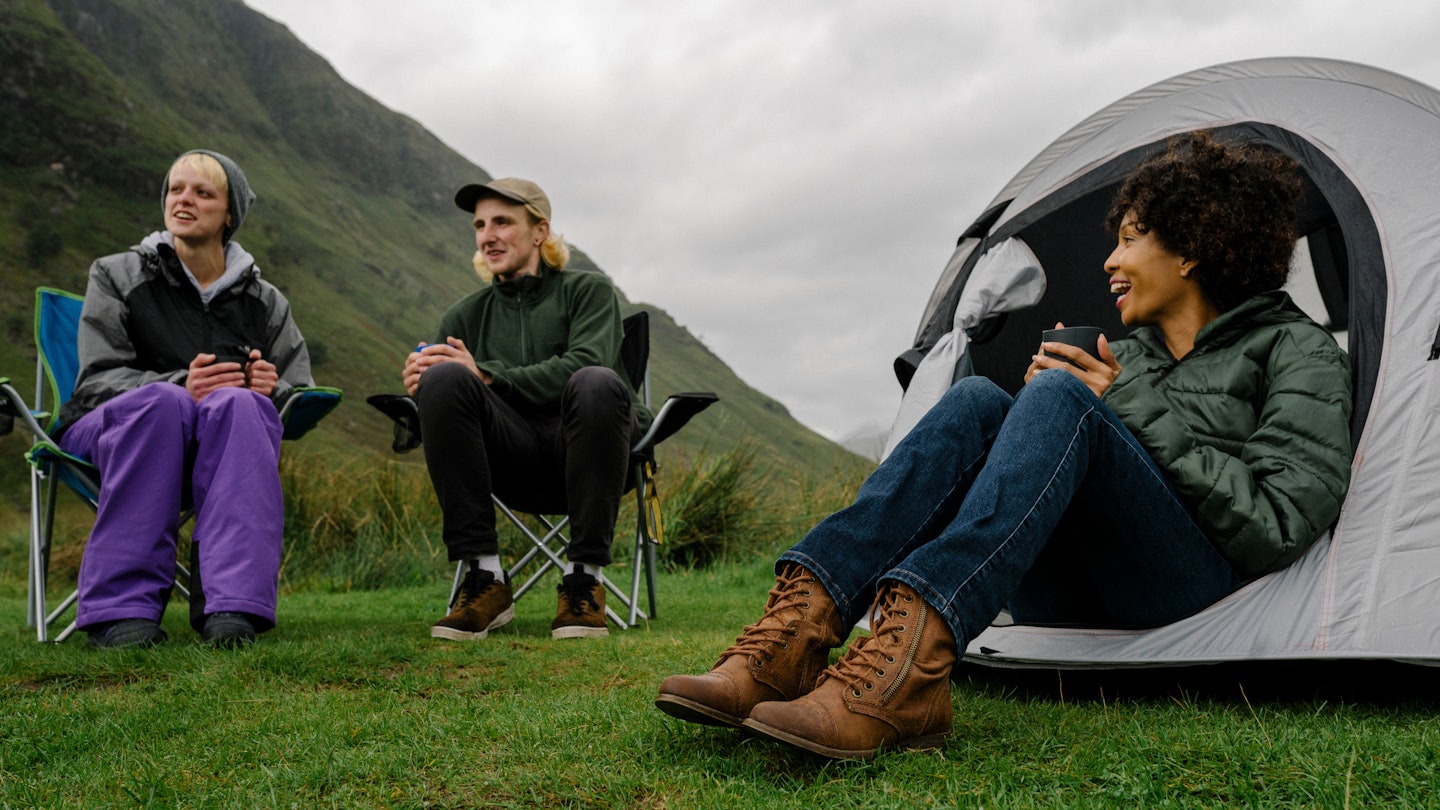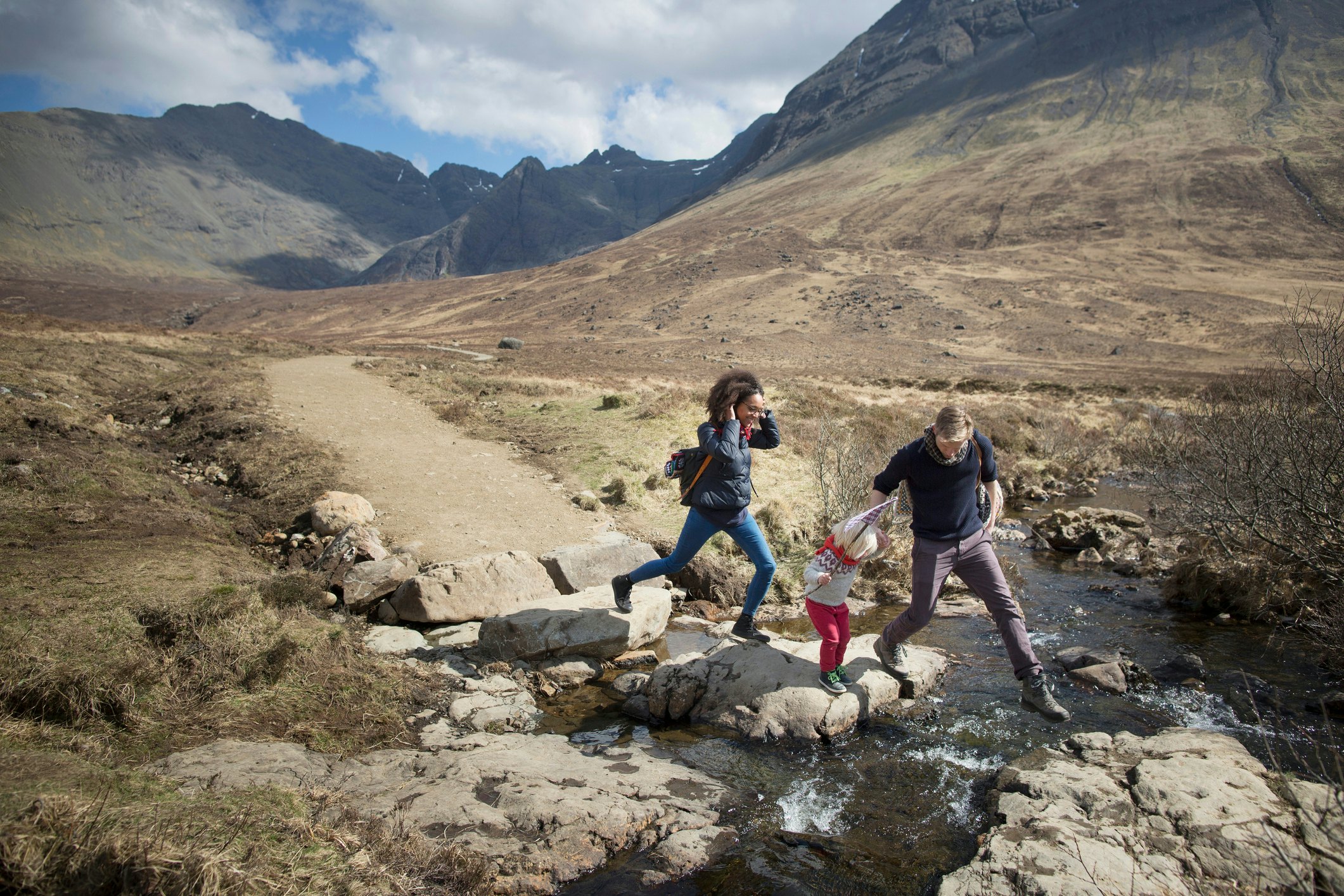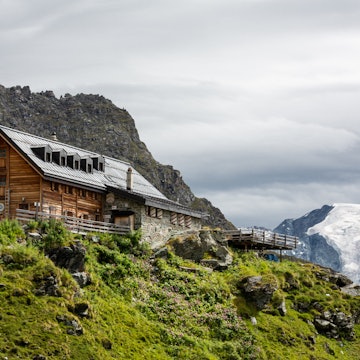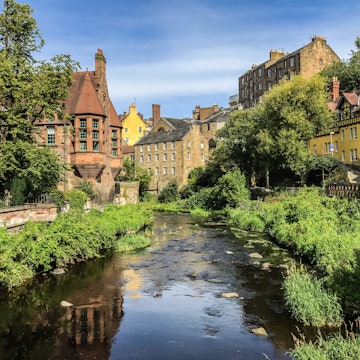
10 things only Scottish locals know – and you should too before traveling there

May 22, 2023 • 6 min read

Pack for weather of all kinds for your trip to Scotland © Rawpixel.com / Shutterstock
Jam-packed with hidden glens, haunted castles and cryptic lochs, overrun with mind-boggling festivals and melodious bagpipe players, and soaked in peated whisky, gin and rain, Scotland can be as baffling as it is brilliant.
This country specializes in astonishing travelers at the same time as confounding them, delivering a double punch of euphoria and disbelief. Not that you’d know it from the chipper locals who take everything in their stride.
For all the undreamed-of scenarios that you can encounter while here – summer hiking in shorts with an umbrella, for instance, or being terrorized by an invisible nuisance, the blood-sucking midge – the truth is that Scotland is an easy country to crack if you know the answer to some crucial questions and practicalities.
What’s the smartest way to travel around when venturing outside of Edinburgh? How long do you need to make a trip to Scotland's islands worthwhile? Is it really OK to eat a deep-fried Mars Bar in Glasgow? (Spoiler: yes, but no one ever really does.)
Here are a few key things and etiquette tips to know before traveling to Scotland.
Pack for all seasons, even in summer...
A joke often told is that Scotland had a great summer last year – it was on a Wednesday. It’s a tongue-in-cheek punchline, of course, but there’s a kernel of truth at its core: the country’s weather is a carousel of ever-variegated four-season shifts, with summer days often wet, wild and glorious all in the same place at nearly the same time.
For the most dependably bright and dry weather, visit in May, early June or September. If gray is your favorite color, any time of year will suit you fine.

...and check the weather if you’re going to the Edinburgh Fringe Festival
Look away now if you don’t want the grim news. Despite the Edinburgh Fringe Festival, the world’s largest arts gathering, taking place in so-called peak summer in August, the event is often a washout. Waterproof shoes and an umbrella that you don’t mind getting blown inside out are as essential as a healthy appetite for comedy, theater, circus and raucous beer gardens.
Scottish pound sterling banknotes are valid everywhere in the UK
It sounds absurd, but the variety of banknotes in the UK can be bewildering. All pound sterling bills, whether printed in Scotland, England or Northern Ireland, are legal tender and valid across the country. You can spend English bills in Scotland, but many retailers won’t accept Scottish bills south of the border. Some foreign exchange services even provide worse rates for Scottish-printed bills.
Be wary when talking politics
Scotland is a divided country, politically speaking at least. On one hand, the independence movement is growing, but some Scots resolutely want to remain part of the United Kingdom. For a simple crash course, know that Scotland is a de facto separate country already with its own parliament – it exists in a political and monetary union with England, Wales and Northern Ireland – and that way you won’t raise the ire when chatting with locals in the pub.
The next decade could see unprecedented change in Scotland. A second independence referendum is often touted, after the 2014 referendum before Brexit failed to get over the line, but Westminster has resisted the call. Even a bare-bones understanding of the country’s sociopolitical history will deepen the pleasure of traveling to Scotland and remind you that you’re not just visiting a place, but a moment in time.

Driving outside the cities can be an art form
On first impression, Scotland is a pipsqueak in terms of European geography. It's easy to digest on the map and then drive around in a matter of days, right? Wrong.
Perhaps the most consequential effect of its jigsaw-puzzle shape, with crooked sea lochs, knobby islands and corkscrewing glens, is that getting from A to B outside the main cities always takes longer than the GPS and Google Maps suggest.
Roads are often single lane, requiring pulling to the side of the road to let oncoming vehicles pass (a friendly wave is part of the roadside theater). Slow-moving vehicles like tractors, campers and motorhomes can grind traffic to a halt, particularly on the now infamous North Coast 500. Wayward sheep and red deer might also take over the road.
Patience is key, and a car or camper will get you to where you want to go faster – and more efficiently – than using Scotland's skeletal train and bus network. Or take your bike, inflatable kayak or canoe on a Scotrail service, now amped-up with more bike carriages and space for bulky sports gear, to see all the parts in between.
Plan for more time, not less
The biggest regret of first-time visitors to Scotland? Trying to cram too much into a single trip. If you’re spending time in Edinburgh and Glasgow and then the Highlands or Stirling and Perthshire, you’ll need at least a week. Add the Isle of Skye or the Outer Hebrides to your itinerary, and you’ll need two weeks – and you’ll still be struggling to catch your breath.
To do Scotland and its idiosyncratic islands justice, you really need three to four weeks. Travel more sustainably and focus on one chunk in particular, like the Borders and Dumfries and Galloway or Aberdeenshire and Moray. Do this, and you’ll be encouraged to stop more regularly and invest more back into the rural towns and villages you might otherwise whizz through.

Wear a kilt if you want
The stereotypical link between the historical birthright to wear a kilt and the act of doing so is gibberish. Everyone looks better in a pleated, knee-length skirt and furry sporran, regardless of gender, nationality or patriotism to Scotland. If you need a new addition to your wardrobe, there’s nowhere better than Scotland to get measured up in tartan.
Don’t be afraid to join in
Going to the pub is a national pastime in Scotland, verging on a human right. The Scots are among the world’s friendliest, most approachable people. They love to binge on alcohol too – cue a whole dictionary of words for drinking, like blootered, bladdered, hammered, steamin’, smashed and wrecked – and see no harm in inviting a complete stranger to share a drink or dram, particularly around Hogmanay (New Year).
Expect to be invited to parties and pubs more so than you would be in many other places around the world. Like anywhere else, though, take care and be aware of your surroundings.

Is it safe to drink the tap water?
Yes. The one thing Scotland isn’t short of is water. Cut down on single-use plastic with a refillable bottle, and take advantage of the free network of rivers and lochs when embracing the great outdoors.
Can travelers get free health care in Scotland?
NHS Scotland, the country’s devolved National Health Service system, is a cornerstone of life, and visitors from most European countries are covered for certain emergency treatments should they have an accident while on vacation. The European Health Insurance Card (EHIC) is the key for this, while travelers from elsewhere should check on reciprocal healthcare agreements between their home country and the UK.















